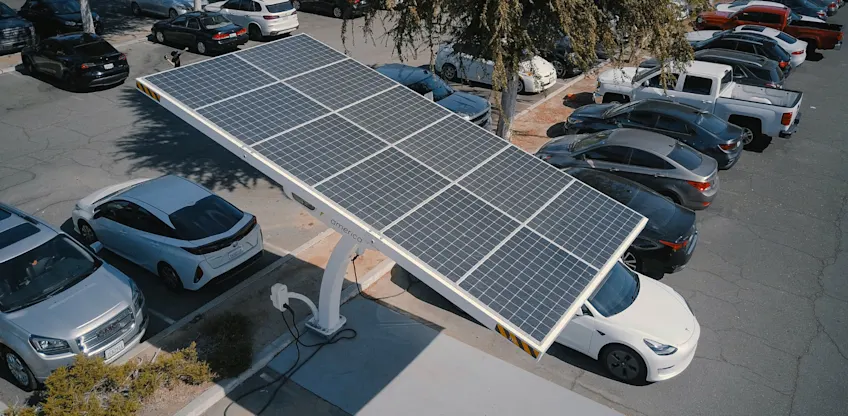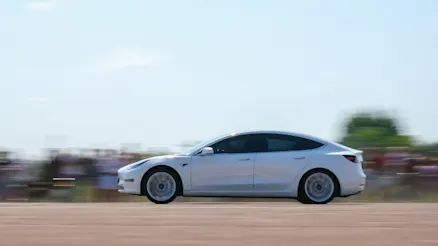
Why hybrids are quietly winning Australia’s EV race
Hybrid vehicles in Australia are currently more popular than full battery EVs. The difference comes down to factors like pricing, variety and range.

Tossing up the transition to an electric vehicle (EV)? Fantastic! Join the growing community of environmentally conscious individuals who are actively contributing to a greener and more sustainable future. But hold on a sec, before you take the plunge into the futuristic world of electric mobility, there’s a few things you might want to consider. From charging spots to government incentives, we’re here to help prepare you for EV ownership. So join us as we unravel the key considerations that’ll help make your EV journey better-informed and (hopefully) stress free.
Understanding your personal driving patterns is essential before you commit to an EV. Consider how you use your car presently, are you a daily commuter, a weekend road tripper or a spontaneous adventurer? Do you often find yourself navigating through a lot of traffic, or are you out on the open roads? Consider the distances you cover, the places you frequent and how often you’re on the move, now consider the practicality of an EV in your daily life. Whatever your habits, understanding them is key to selecting an EV that's got the range and performance capabilities to suit your lifestyle.
For most of us, well-established charging infrastructure will help alleviate any concerns surrounding vehicle range. It’s important to investigate charging solutions at home, work, or in public spaces, as these choices will have a direct impact on your daily routine. Carefully evaluating the current availability of charging stations in your local area also ensures that owning an EV is a viable option for you (and won’t be considered inconvenient after the novelty factor has worn off). Additionally, consider the implications of charging times and the availability of fast-charging stations near you, as these will vary from suburb to suburb.

In Australia, the total cost of ownership for an electric vehicle is dependent on a number of factors. While the initial purchase price of an EV may appear relatively high in comparison to traditional models, it’s essential to consider the various elements of an EV that contribute to long term savings. Government incentives and rebates, such as the Australian Federal Government’s instant write-off for businesses investing in EVs, can significantly offset the upfront costs. Furthermore, the lower operating costs of EVs, including reduced fuel expenses and fewer maintenance requirements due to the simplicity of electric drivetrains, contribute to substantial savings over the vehicle’s lifespan. Aussies can also take advantage of lower electricity rates during off-peak hours for charging, enhancing the cost-effectiveness of EV ownership. As charging infrastructure continues to expand across the country, the convenience of charging at home, workplaces, and public spaces further supports the overall economic feasibility of embracing EV ownership.
When considering the purchase of an EV it’s crucial to factor in the longevity and health of the vehicle’s battery. Understanding the battery’s lifespan (typically measured in charging cycles) will give you an insight into how much time you have before a replacement is required. By familiarising yourself with ways to prolong your EV’s battery life (such as avoiding extreme temperature exposures) you can optimise the performance and durability of your EV, ensuring a smoother and more cost-effective ownership experience in the long run. We also suggest researching your preferred manufacturer’s battery warranty prior to purchase, as this can vary across different EV models.
Before you impulse buy a Tesla, it’s a good idea to explore the diverse range of options available on the market, each one offering unique features and specifications. From compact urban EVs like the Hyundai Ioniq, to high performance options such as the Polestar, enjoy plenty of freedom to tailor your choice based on your personal preferences and needs. Inclusions such as advanced driver-assistance systems, cutting-edge infotainment technologies, and state-of-the-art connectivity options have become standard in many EV models, making choosing between similar models all the more difficult. If you value getting from A to B like we do, we also suggest taking note of battery capacities, charging capabilities, and range variations as these can differ significantly between brands. With continuous advancements in EV technology, staying informed about the latest upgrades ensures that you’ll make a future-proof investment aligned with your lifestyle and driving requirements. As the EV industry continues to evolve, expect plenty of innovative vehicles to emerge to accommodate those of us seeking sustainable and cost-effective new rides.

As the world pivots towards more sustainable transportation solutions, considering the environmental impact of EVs becomes paramount. Electric vehicles have a significantly lower carbon footprint compared to that of traditional petrol or diesel vehicles. Operating without emitting tailpipe pollutants, EVs contribute to the reduction of both air pollution and greenhouse gas emissions. While this is a notable environmental benefit, it's crucial to also consider the implications of the electricity used for charging. By opting for renewable energy sources, you can further enhance the eco-friendly profile of your EV. As battery technology continues to improve and the world increasingly embraces cleaner energy, choosing to invest in an electric vehicle is a mindful commitment to combating climate change and fostering a more sustainable future.
To summarise, the journey towards electric vehicle ownership requires a comprehensive understanding of several important factors. From the vehicle’s range and the necessity for robust charging infrastructure, to the considerations of battery life, replacement costs, and maintenance requirements, each aspect plays a pivotal role in shaping the overall ownership experience. As the automotive industry shifts to become more sustainable, we’re presented with more diverse and capable EVs, making the decision to invest in electric a simple one. By keeping up to date with EV advancements, we can confidently contribute to a greener future whilst also enjoying the practical and innovative benefits of EV ownership. So, with all that said, consider switching to electric, and take a conscientious step towards a cleaner, more efficient and technologically advanced Australia.
If you’d like to learn more, click here to check out our article on everything you need to know before buying a used electric car.

Hybrid vehicles in Australia are currently more popular than full battery EVs. The difference comes down to factors like pricing, variety and range.

The Australian Government has confirmed an EV road user tax will apply in the future. So is this a good idea or an unfair one? Let’s get stuck in.

Are EVs losing popularity in Australia? As we explore, there’s still plenty of interest in electric technology but the issue is multifaceted.